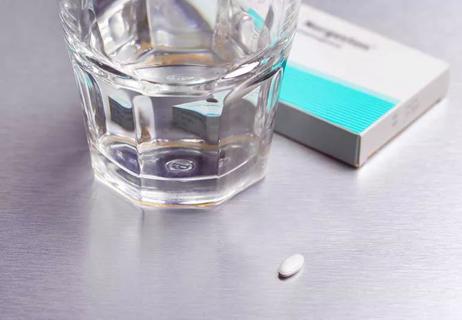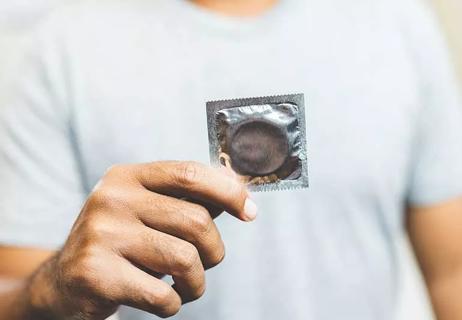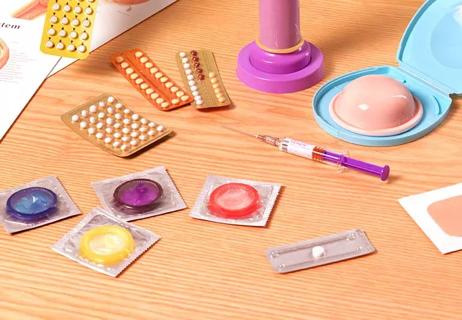Go for latex-free options if you experience sensitivity

Latex is a milky fluid from the rubber tree. It’s the main source of natural rubber. But if you’re like a lot of people, wearing latex gloves can make your hands itch. For others, latex exposure can ignite a full-blown allergic reaction.
Advertisement
Cleveland Clinic is a non-profit academic medical center. Advertising on our site helps support our mission. We do not endorse non-Cleveland Clinic products or services. Policy
Of course, gloves aren’t the only things made from latex. Many condoms are latex-based, too. Luckily, there are plenty of latex-free options available. Even if you’re personally fine with latex condoms, think about this — you may still need to consider latex-free options for the sake of your partner.
“Women are more likely to experience an allergic reaction to a latex condom than men,” says allergist David Lang, MD. “The vagina’s mucus membranes make it easier for latex proteins to enter the body. So during sex, women with latex allergies may encounter vaginal swelling and itching.”
“Mucus membrane exposure to a condom in a woman with latex allergy could provoke a serious systemic reaction,” he explains.
Latex sensitivity develops in some people over time through repeated exposure.
Before latex-free gloves were widely available, the issue was common among healthcare workers. Latex sensitivity is now less common, Dr. Lang says. The availability and widespread use of other available materials is likely the reason for this.
True latex allergies are even more rare. But they cause a more severe response. If you’re experiencing an allergic reaction to latex, you may notice itching, hives and swelling. You may also have difficulty breathing and feel like your throat is closing up.
Advertisement
Although very unlikely, anaphylaxis (a potentially life-threatening allergic reaction) is possible. Your body reacts when latex proteins cross the skin barrier.
Though most condoms contain latex, there are a few alternatives made from plastic, synthetic rubber or other natural products. These alternatives include:
“If you’re concerned you might have a latex allergy, see your doctor,” Dr. Lang recommends. “They’ll use either a skin or blood test to find out if you have an allergy.”
“Seeking information about how to stay healthy is always a good idea, and sex should absolutely be included,” he says. “Ask your doctor for more information about latex-free protection during sex. If you have an allergy, your doctor can offer advice on the best option for you and your partner — just make sure you’re taking your health seriously enough to seek the solutions that fit both of your needs.”
Advertisement
Learn more about our editorial process.
Advertisement

Turn to emergency birth control and STI tests

Most condoms will fit most people, but other factors matter, too

Yes, there is a condom that will fit

Pink eye tends to start in one eye before spreading to the other, while allergies usually affect both eyes at the same time

Most antihistamines, like Zyrtec, are OK, but avoid decongestants for at least the first trimester

The Yuzpe regimen is less effective than other forms of emergency contraceptives, and it’s associated with more side effects

Allergies, indigestion and the effects of gravity can all mess with your nose at night

Open the windows, keep a clean house and consider putting in preventive features like carbon monoxide detectors

The tropical fruit is a good source of antioxidants and vitamin C

Most people fall asleep within 10 to 20 minutes, but if your experience is different, adjusting your sleep schedule may help

Exploring your hidden side can lead to better understanding of what makes you tick